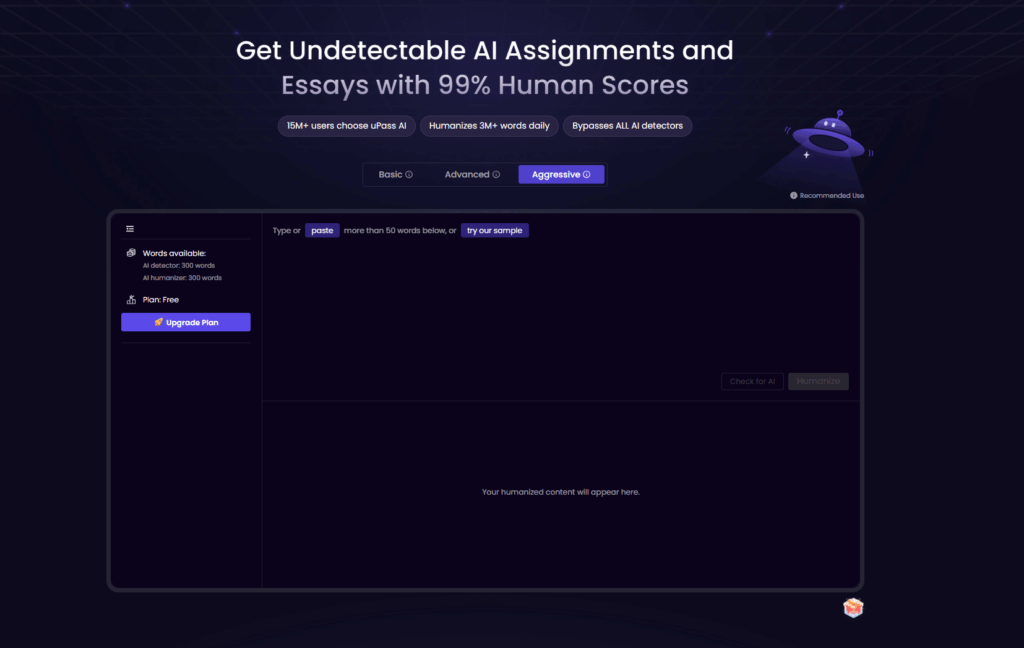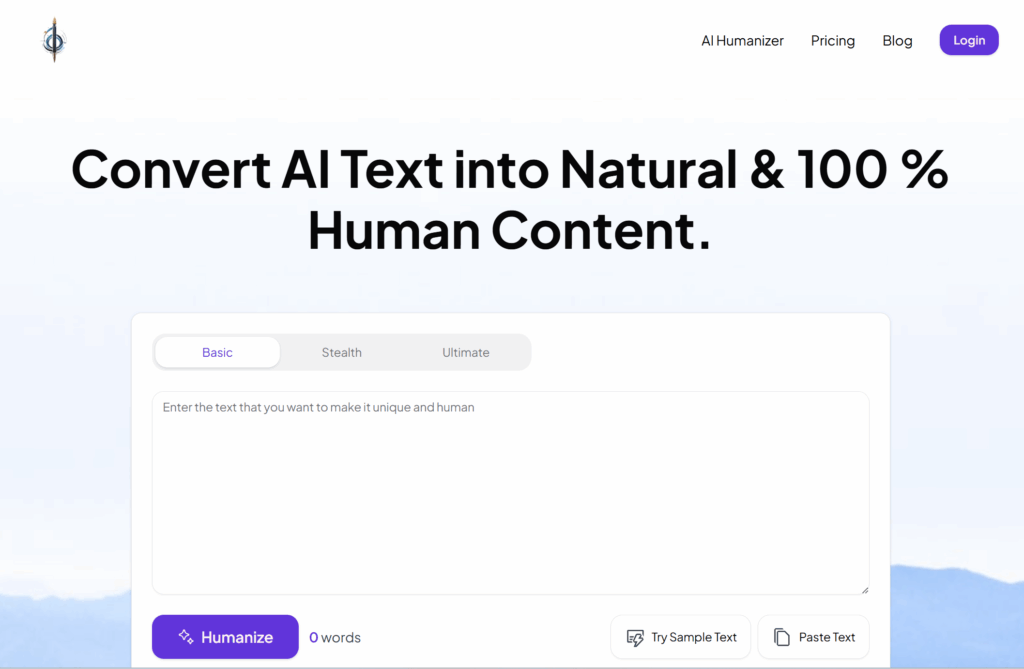In a world where AI writing is everywhere, tools like uPass AI claim to help you humanize your content. But does it actually work? Let’s find out.
What Is uPass AI?

uPass AI is a tool designed to help users take content written by AI tools like ChatGPT and make it sound more like a human wrote it. This type of tool is called an AI humanizer. The goal of uPass AI is to bypass GPTZero AI detection and other tools like Turnitin or Originality.ai.
The platform says it works by changing words, rewriting sentences, and adjusting structure to reduce AI-like patterns. In short, uPass AI wants to help users create undetectable AI content — text that no AI detector can flag.
Sounds great, but how well does it really perform?
How uPass AI Works
uPass AI is a cloud-based tool. Users don’t need to install anything. The process is simple:
- You paste your AI-generated text into the input box.
- Click the “Humanize” button.
- The tool gives you a rewritten version.
- You copy the humanized version and use it as needed.
It looks simple, but the results are what really matter. Is the output truly human-like? Does it pass GPTZero or other detectors? Is it still readable and correct?
Let’s look deeper.
Features of uPass AI
Here’s a quick look at the main features of uPass AI:
| Feature | Description |
|---|---|
| Humanization Engine | Rewrites text for a more natural tone |
| GPTZero Resistance | Claims to reduce detection risk |
| Web-Based Access | No download needed |
| Instant Processing | Fast results in seconds |
| No Text Limit (Pro Plan) | Allows large file input |
The idea is clear: make AI text more human — fast.
But is it really that simple?
uPass AI: Real-World Performance
We tested uPass AI with different types of AI-generated content:
- Blog paragraphs
- Essays
- Product descriptions
- Short stories
Then we ran the humanized versions through AI detectors like GPTZero and Originality.ai.
Results:
- Mild improvement in AI detection score on short texts.
- Still detectable on long-form or complex content.
- Some odd sentence structures and awkward wording.
- Grammar issues showed up in 1 out of 4 samples.
While uPass AI did help in reducing the AI signature in some cases, it was not consistent enough to rely on — especially for academic or business use.
Pros of Using uPass AI
- Fast to use: Results are almost instant.
- Simple interface: Very easy for beginners.
- Affordable pricing: Good entry point for testing humanizers.
- Helpful for light edits: Can be useful for casual rewriting.
Cons of Using uPass AI
- Still detected by GPTZero in some cases
- Awkward sentence rewrites can hurt clarity
- No tone control or customization
- No advanced language logic or deep rewriting
- No grammar correction included
These limitations are important, especially if you’re looking to create professional-level or undetectable AI content.
Who Should Use uPass AI?
uPass AI might be okay for:
- Students rewriting simple paragraphs
- Writers who need casual humanization
- People testing AI detection tools
It’s not ideal for:
- Academic writing
- Formal business content
- Writers needing grammar-perfect results
- Anyone trying to fully bypass GPTZero AI detection
Real User Feedback
Here’s what some users said about uPass AI (from public Reddit threads and review forums):
“It made my ChatGPT text sound a bit more natural, but still got flagged by Turnitin.”
“Some rewrites were fine. Others felt off. Not great for full essays.”
“Good for short answers or casual content, but not a long-term fix.”
A Better Option: HumanizeText.ai

If you’re looking for a more advanced, powerful tool, HumanizeText.ai is the best alternative to uPass AI. It uses deep rewriting logic, not just basic paraphrasing. The tool is specifically built to make your AI-generated content:
- More human
- More accurate
- More natural in tone
- Better at bypassing GPTZero AI detection
Unlike uPass AI, HumanizeText understands grammar, tone, and flow. It produces clear, clean, and undetectable AI content that still sounds like you — not a robot.
Whether you’re a student, blogger, or marketer, HumanizeText.ai is a smarter choice if you want your AI content to feel real and safe to use.
FAQs
1. What is uPass AI used for?
uPass AI rewrites AI-generated content to make it sound more natural. It’s mainly used to try to bypass AI detection systems like GPTZero.
2. Does uPass AI really bypass GPTZero?
Sometimes — but not always. It can reduce the AI detection score slightly, but it’s not reliable for full humanization or deep rewriting.
3. Is HumanizeText.ai better than uPass AI?
Yes. HumanizeText.ai offers more accurate rewriting, better grammar, and higher success in making content truly human-like and undetectable.
4. Is uPass AI free to use?
It may have a free version or a free trial, but many features are behind a paid plan. Check their website for current pricing options.
Conclusion
uPass AI is easy to use and may work for light humanization, but it has limits. If you want better grammar, deeper rewriting, and more reliable results, HumanizeText.ai is the better option.